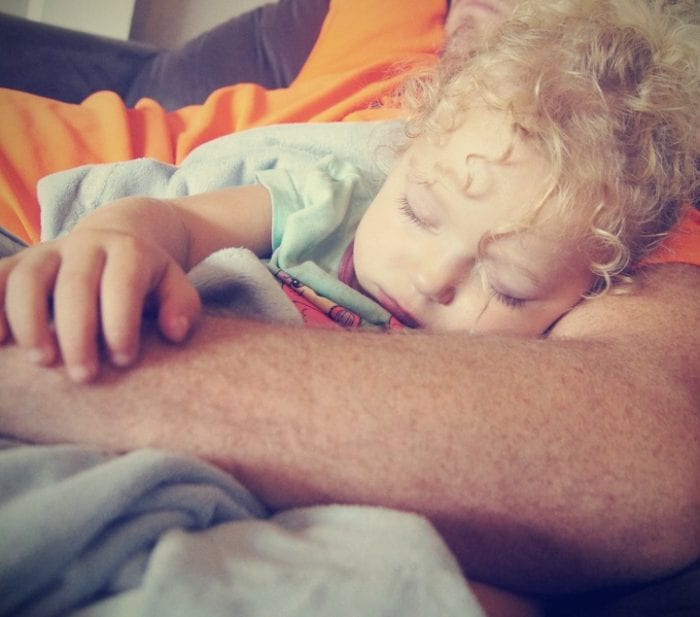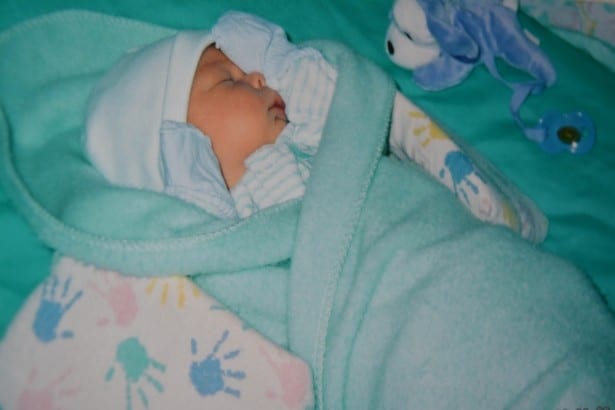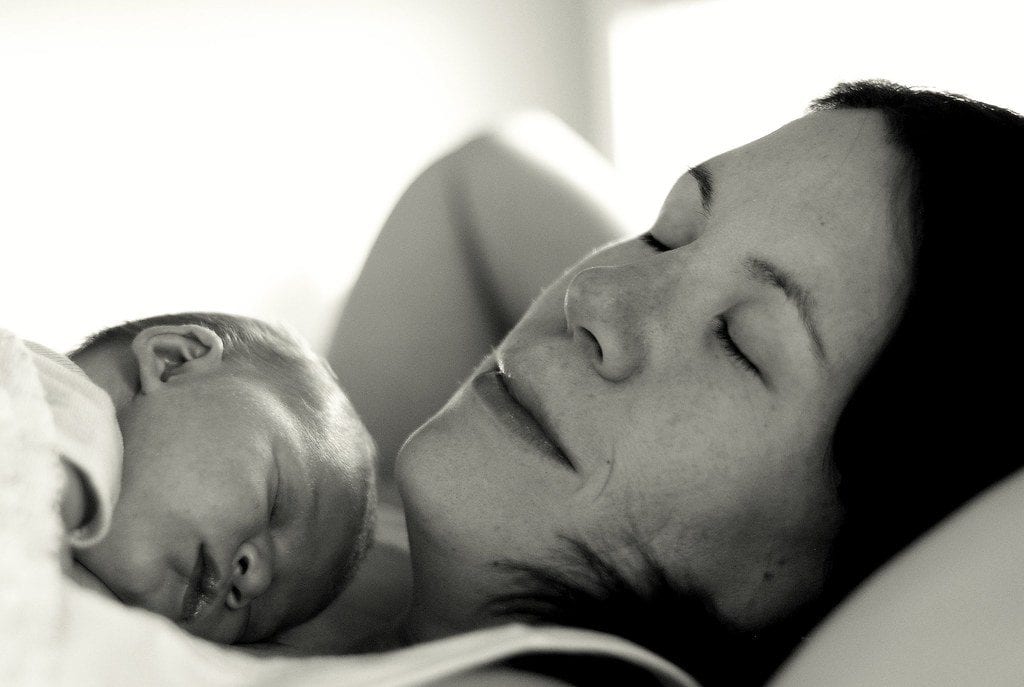To babies, their naps are the most precious thing, a ritual that many parents don’t dare to interrupt. Getting your little one when they’re sleeping is something that may not seem too smart, but there are many reasons why one may wake their sleeping infant as well.

Your Little One Slept Past Their Schedule
Babies should have a daytime schedule that they should follow. Sleep cycles are always important. Having a certain time when one wakes up can be a good thing. However, there are many times when your child sleeps over their schedule. Oversleeping cannot preserve bedtime schedule, and night sleep is something parents don’t want to mess around with.
Longer sleep is recommended when the child is a little sick. If they are sick, a little bit more child’s sleep can help them fight off the disease. However, they will need hydration and nourishment, so you should let them sleep longer but also have time to give them their goodies. Also, make sure the child doesn’t have a fever, or else you may want to go to the doctor. Speaking of feeding…

When The Child Hasn’t Eaten For A Few Hours
If your child falls asleep from a long day and it’s way past their feeding time as much as we want to give them more sleep, perhaps it’s time for them to wake up and eat, then just put them back to sleep after a quick meal. It’s always important for you to feed your child regularly. If their birth weight is a little under what is normal, it’s even more important for you to be able to feed them on a regular basis.
Ensuring kids get an adequate amount of sleep involves strategically capping daytime naps to avoid interfering with the third nap and preserving an early bedtime. Avoid waking them up from sleeping abruptly. Implementing dream feeds can also contribute to your child sleeping longer stretches through the night, especially after a rough night, promoting a more consistent and restful child’s sleep pattern. If the child is at a good weight and is having normal bodily functions, you can let them sleep longer and you won’t have to feed them as much, either.
When It’s Near Bedtime
Children typically have a bedtime, yet many of them will fall asleep near the early evening. This can especially apply if the day has been busy. Now, if the child is younger, then they may be able to fall asleep early evening and be out all night. However, if they are older, sleeping too close to bedtime may make them wake up early and cause a hassle for all involved.
- Their last nap before bedtime at night should be a couple of hours apart. This is especially true if the infant is over 3 or 4 months. However, occasional napping near bedtime may not be the end of the world.
- If your child is taking too many short naps before bed, however, it is important that you try to wake them up and try to make them have the next nap a little bit earlier. This can help them sleep much better at night when it’s time for them to do so.
- Don’t let them fall asleep too close to bedtime so you won’t have to worry as much.
Are Catnaps Good?
Some parents swear by the power nap, where a child falls asleep for 20 minutes and then wakes up. A power nap may be good for an adult who didn’t get much sleep last night and needs something to pick them up, but your little one may believe they’ve slept longer than they did. A power nap may cause them to think they’ve gotten enough sleep when they haven’t. They also need a good nighttime routine. This can lead to overtiredness, which is a vicious cycle that can be hard to break.

Just How Much Sleep Do Babies Need Before Waking Them Up, Anyway?
Infants do need lots of sleep, especially younger ones, which is why nappingis so important. If you’re unsure how much sleep your child needs, let’s quickly discuss how much sleep your child will need on average.
Long naps in babies can take about two hours but if it hits three hour mark, waking up may be necessary. Otherwise, this will cause a late bedtime at night. Naps that last for seconds only are not always advisable especially if you want your baby to establish a bedtime routine. Here are some tips:
- Use a gentle approach to ensure your baby transitions smoothly.
- Start by dimming the lights in the room, creating a calm environment for the baby.
- Gradually introduce soft sounds or gentle music while baby is napping. Approach the crib with slow movements, avoiding sudden noises to avoid baby from getting up from her nap.
- Begin by stroking or patting the baby gently, allowing them to wake up naturally. If needed, speak softly or sing a lullaby to ease the baby. Maintain a soothing tone and ensure your touch is comforting for the baby.
- Be patient and give the baby some time to adjust before lifting them. Consistency in these gentle waking practices can contribute to a peaceful transition for the baby.
Waking Up Newborns
Newborns that are born full-term and are healthy need lots of sleep and have more than enough sleep pressure in them to go to sleep almost instantly right after they feed. You’ll be surprised by how long a newborn can day sleep. On average, newborns sleep about 14-17 hours a day. That means some infants are only up for seven hours a day. Imagine if you only had seven hours a day to do something! Some parents may worry if their newborn is sleeping too much, but rest assured, it’s normal in most circumstances for infants to sleep for long periods since they haven’t developed their circadian rhythm yet. Do note that little ones need to eat regularly through the night during the first few weeks.

A baby will accomplish all this sleep by sleeping around 8-12 hours every night, with a few wake-ups to be fed, and the rest will be done via through shorter resting periods throughout the day. With that said, newborns and very young children don’t know the difference between day and night, and they can’t stay awake for too long. It can be a bright summer day and a baby won’t care. They’ll sleep in, anyway. For the first month or so, having a schedule isn’t needed, so just let your baby sleep until they’ve woken up and are hungry without interrupting baby’s nap. This can be a little frustrating after waking up in the middle of the night, but they do need the extra sleep.
Rules In Waking Up 4-11 Months Babies
Around this time, many will have some separation anxiety as well as become more aware of their surroundings. In a case like this, they may cry for your attention and it can get a little frustrating. However, you should know that they will eventually learn to get sleep.
- An older baby and toddler still needs lots of sleep, usually including sleeps in the morning and in the afternoon in addition to their bedtime sleep, their nap hour is as important as their sleep during the night.
- They may even take an evening nap. Usually, they may need about 12-15 hours every day. By this age, they are starting to sleep more throughout the night and might need other capping sleeps less.
- They will get most of their sleep at night but still sleep a little bit here and there taking a long nap during the daytime. At around six months, your baby will start developing a more normal schedule.

Conclusion: Waking Babies From Long Naps
Is it okay to wake my babies up from naps? Sleep schedule among babies is quite complex. By knowing how it works, you can be able to make the most of it and allow the baby to get the best rest it possibly can. Make sure babies are getting enough sleep before you get them up. Gently rouse sleeping babies or toddlers from their morning nap or afternoon nap, ensuring not to disrupt their overall daytime sleep schedule.
Frequently Asked Questions
How Do You Get Up A Baby From A Good Night Sleep?
The perfect example of where it’s ok to wake babies from a nap is when it’s not the right time of the day to sleep and they need to go to bed at a consistent time. Your little one’s sleep plays a key role in their early development, which is why night sleep and sleep cycles are very important. But there are times when you need to wake them up because it might mess up their nap schedule.
What Time Should You Get Babies Up When They’re Taking Their Last Nap?
What Happens When You Wake Babies Up During A Nap?
To wake a sleeping baby is such a daunting task, but sometimes we just need to do it for many different reasons. Younger infants need naps daily besides their consistent bedtime, sometimes they would sleep longer than they should, and we need to cut their nap hours, or else it will mess up their sleep cycles.
Should I Let My Baby Nap As Long As He Wants?
How Long Is Too Long For A Child To Nap?
- Duration Consideration: Ideally, nap durations for children vary based on age.
- Newborns (0-3 months): 4-5 naps, each lasting 30 minutes to 2 hours.
- Infants (4-11 months): 2-3 naps, each around 1 to 2 hours.
- Toddlers (1-2 years): 1-2 naps, with each nap lasting 1 to 3 hours.
- Preschoolers (3-5 years): 1 nap, typically 1 to 2 hours.
- Cues that your child gives: Pay attention to the child’s mood and behavior after waking; if they seem groggy or have difficulty falling asleep at night, the nap might be too long.
- Consistency: Maintain a consistent nap schedule to regulate sleep patterns.
- Bedtime Adjustment: If the nap is extended, consider adjusting bedtime earlier to avoid disrupting nighttime sleep.
How Do You Resettle A Baby After A Short Nap?
- Observe Sleep Cues: Pay attention to your baby’s sleep cues to determine if they are still tired. If they appear drowsy or fussy, it means they need more rest.
- Gentle Approach: Approach the baby with a gentle demeanor, minimizing stimulation. Keep the environment calm and soothing to facilitate a smooth transition back to sleep.
- Comforting Techniques: Utilize comforting techniques, such as gentle patting, rhythmic shushing, or soft singing. Reintroduce any sleep associations used during the initial nap.
- Extend Sleep Environment: If the baby’s sleep space is conducive, try extending the nap by providing a quiet and dimly lit atmosphere. This might encourage the baby to resume sleeping.
- Check for Discomfort: Ensure the baby is not uncomfortable due to a wet diaper, hunger, or any other discomfort. Addressing these basic needs can contribute to successful resettling.
- Consistent Routine: Maintain a consistent nap routine to signal to the baby that it’s time for sleep. Consistency can help regulate their sleep patterns and make resettling easier.
- Be Patient: Resettling may take some time, so be patient. Experiment with different methods to find what works best for your baby, and remember that flexibility is key when adapting to your baby’s evolving sleep patterns.
Should I Let My Baby Nap For Longer Than 2 Hours?
It depends. Here are some tips to go by.
- Age-Appropriate Sleep: Newborns and infants often require more sleep and may naturally take a longer nap. As babies grow, their sleep needs and patterns change.
- Observe Sleep Cues: Pay attention to your baby’s cues. If they wake up well-rested, alert, and content after a longer nap, it might indicate they needed that additional sleep.
- Nighttime Sleep Impact: Ensure that longer sleeps are not negatively affecting your baby’s nighttime sleep. If extended daytime sleep leads to difficulty falling asleep or staying asleep at night, adjustments may be necessary.
- Flexibility: Be flexible and responsive to your baby’s sleep cues. While general guidelines exist, every baby is unique. Some may naturally gravitate towards shorter, more frequent sleep, while others may consolidate their daytime sleep into longer periods.
- Consistency: If your baby consistently sleepfor longer durations and exhibits a healthy sleep routine, there may be no need for concern. Consistency in sleep patterns contributes to overall well-being.
Should I Disturb An Overtired Baby To Feed?
How Do You Resettle An Overtired Baby?
- Calming Environment: Create a soothing atmosphere by dimming lights and minimizing noise.
- Gentle Comfort: Offer gentle comfort through patting, rocking, or soft singing to ease the baby back to sleep.
- Consistent Routine: Stick to a consistent sleep routine to establish a sense of security and predictability.
- Check Basic Needs: Ensure the baby isn’t hungry, uncomfortable, or in need of a diaper change.
- Prevent Overstimulation: Avoid overstimulating activities close to bedtime to help the baby wind down effectively.
Why Does My Baby Wake After Sleeping Too Early?
What Are The Signs Of An Overtired Baby?
What Is 2-3-4 Rule When It Comes To Babies Sleep Schedule?
What’s The 15-Minute Rule When It Comes To Letting Babies Sleep?
Should Infants Sleep In The Dark?
Will A Breastfed Baby Sleep If Hungry?
What Is The Best Sleep Training Method?
Is 9pm Too Late For Bedtime?
Why Does A Baby Sleep And Nap At Night?
When Should I Wean Babies?
Should You Bathe Babies Every Night?
Should I Feed Baby Before Or After Bath?
How Do I Regularly Teach My Baby The Difference Between Day And Night?
Why Helping Infants Develop A Sleep Routine Is Important?
How Should Help A Child Get Up In The Morning?
Why Should A Baby Have More Sleep Than Older Kids?
Why Should You Not Disturb A Child Who Is Sleeping?
Daytime Sleep
Other Resources: My Baby Can’t Fall Asleep At Night
TodaysParent: https://www.todaysparent.com/baby/baby-sleep/yes-sometimes-its-ok-to-wake-a-baby-from-a-nap/
WhatToExpect: https://www.whattoexpect.com/first-year/child-sleep.aspx
WebMD: https://www.webmd.com/parenting/baby/ss/slideshow-naps
Last Updated on May 12, 2023 by Mary Cimeni
DISCLAIMER (IMPORTANT): This information (including all text, images, audio, or other formats on FamilyHype.com) is not intended to be a substitute for informed professional advice, diagnosis, endorsement or treatment. You should not take any action or avoid taking action without consulting a qualified professional. Always seek the advice of your physician or other qualified health provider with any questions about medical conditions. Do not disregard professional medical advice or delay seeking advice or treatment because of something you have read here a FamilyHype.com.